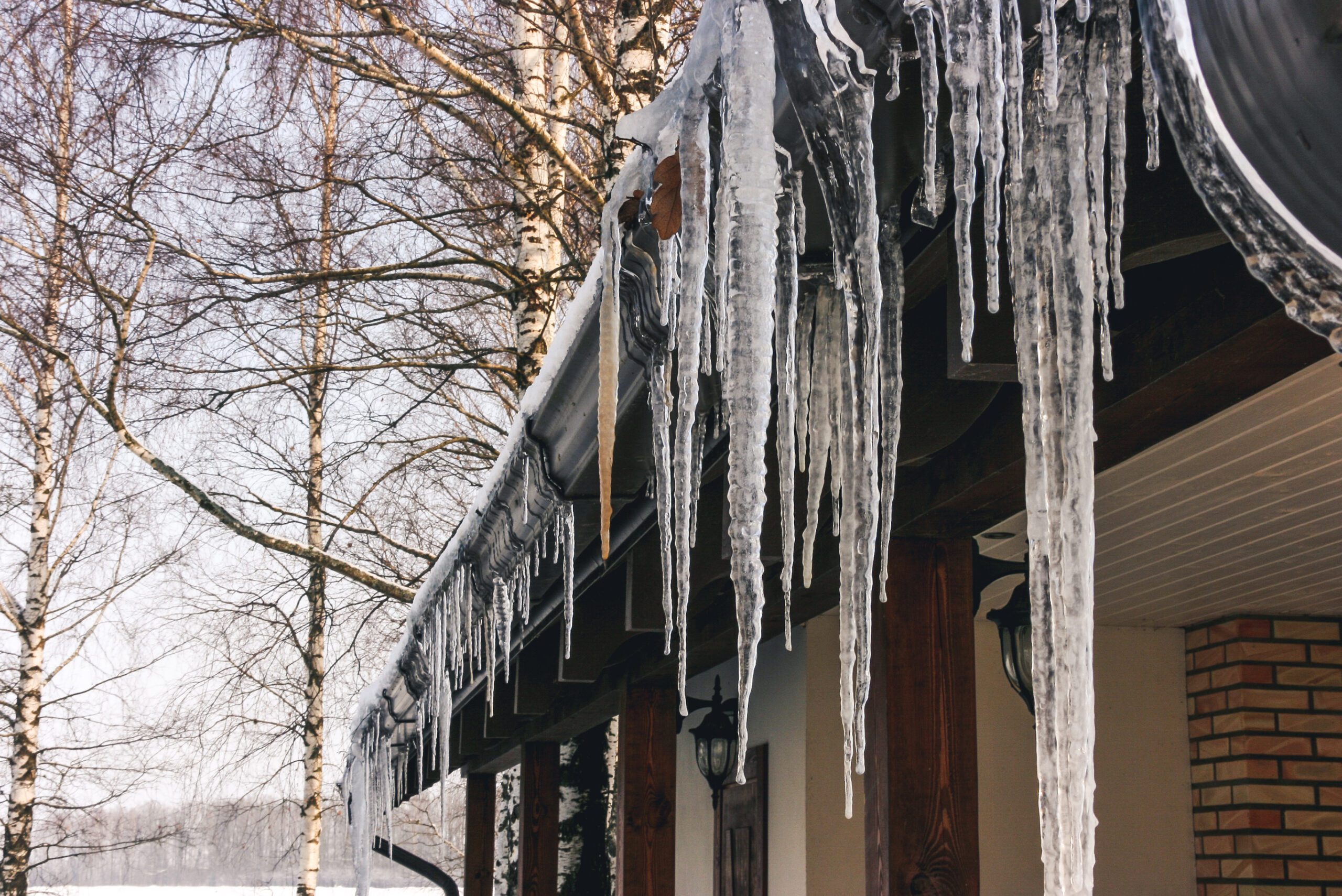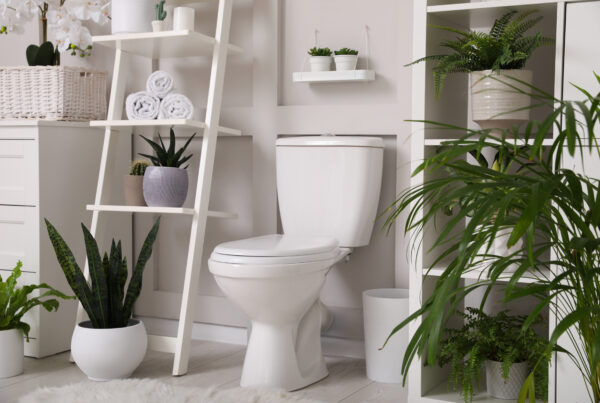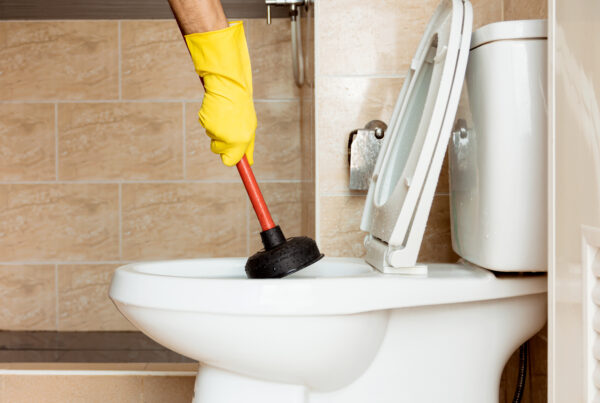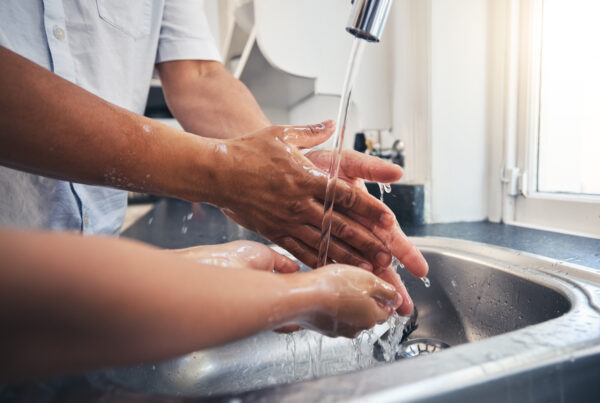Keep these tips in mind to prevent frozen pipes and what you might try if they do freeze
Frozen water pipes are a problem in both cold and warmer climates, affecting families each winter. In addition to conducting regular winter home maintenance, protecting pipes from freezing is important. Even a tiny crack in a pipe may spew hundreds of gallons of water causing flooding! Because water expands as it turns to ice, frozen pipes are prone to bursting, which can result in costly water and plumbing damage throughout your home. At the highest risk of freezing are pipes that run against exterior walls and those in unheated or uninsulated places, such as the attic, basement, or garage.
Read on to learn a few simple tricks to protect your pipes from freezing and keep the water running in cold weather. We’ll also walk you through what to do if you think your pipes might be frozen and how to thaw them to ward off a bigger home disaster.
Burst pipes are one of the most common causes of property damage during frigid weather and can cause thousands in water damage—easily $5,000 or more, according to the Insurance Institute for Business and Home Safety.
6 Simple Tricks to Protect Your Pipes
1. Protect Your Outdoor Faucets and Fixtures
After you finish tending to your garden for the season, disconnect, drain, and store your hoses. Apply insulated covers on all outdoor garden faucets or hose bibs that are exposed to the elements. If you have any shut-off valves that supply water to any outdoor fixtures other than your hose bibs, place them in the off position and open the line to drain any water that may sit in the line.
Example being if you have an outdoor kitchen area with a sink, shut the direct water supply line(s) off at the fixtures and turn the faucet to the on position to allow remaining water to drain out. Keep it open throughout the winter to allow space for any water that remains in the pipe to expand. Additionally, drain water from any sprinkler supply lines following the manufacturer’s directions.
2. Insulate Your Pipes
Insulate any pipes located in unheated areas, such as in the attic, basement, crawl spaces, or garage. In extreme cold, pipes underneath kitchen and bathroom sinks are vulnerable to freezing. Apply foam insulation liberally to provide a buffer against frigid temperatures. Wrapping your pipes in heat tape or thermostat-controlled heat cables can also keep them warm enough to prevent freezing.
ABC Plumbing has insulation on hand of all sizes and can help you do this at any time of the season to help ensure all exposed pipes are properly insulated.
3. Seal Any Air Leaks
Inspect your home for any cracks or openings that could let in cold air. Seal any holes around the piping in interior or exterior walls and the sill plates, where your home rests on its foundation. Additionally, since leaving your garage open is like creating a giant air leak, always keep the door closed unless you’re going in or out.
4. Open Doors and Cabinets
Ensure warm air can circulate evenly throughout your home during cold snaps. Leave interior doors ajar and open kitchen and bathroom cabinets to distribute heat consistently around rooms. Remove any household chemicals or potentially harmful cleaners from open cabinets if you have small children or pets at home.
5. Let Faucets Drip
Even a small trickle of water can prevent ice from forming inside your pipes. When it’s bitter cold outside, start a drip of water from all faucets served by exposed pipes. Leaving a few faucets running slightly will also relieve pressure inside the pipes and help prevent a rupture in the event that the water inside freezes. Even hot water lines can freeze so keep this in mind!
6. Keep A Consistent Temperature
Set your thermostat to maintain a consistent temperature throughout the day and night. In normal weather, bumping down your thermostat at night or when you’re not at home can help save on heating costs, but in extreme cold, maintaining a steady temperature is key to keeping your pipes free of ice.
If you’ll be away from home during cold weather, ensure your thermostat is set to at least 55°F. The few extra dollars you’ll spend on your utility bill will be well worth the thousands you’ll save by avoiding a burst pipe.
Before You Leave Your Home
Take measures to help protect your home so you can enjoy the time away, rather than worry about pipes and security. A few things to remember include:
- Check the thermostat. Set the thermostat in your house no lower than 55 degrees Fahrenheit (12 degrees Celsius). Also check and replace the battery in your thermostat, if needed.
- Ask for help. Consider asking a friend or neighbor to check your house daily to see that it’s warm enough to prevent freezing.
- Shut off the water to outdoor systems and leave a drip on indoor fixtures that backup to the exterior of your home. Please note some suggest to shut off water to your whole house but that is not always the best idea.
What to Do if Your Pipes Freeze
If you suspect you have a frozen pipe, start by turning on the faucet. If only a drip or trickle of water flows out, you likely have an ice blockage. Next, carefully inspect the exposed pipe for any cracks or breaks.
If any pipes have burst, turn off the main water supply for the house and immediately call ABC Plumbing for assistance. Attempting to thaw a pipe that has already burst can cause water to flow out and flood your home.
Pipes do not always burst when frozen.
There are a few things to keep in mind:
- Call ABC Plumbing. If you turn on your faucets and nothing comes out, leave the faucets turned on and contact your plumber.
- Avoid applying flames to thaw pipes. Never try to thaw a pipe with a torch or other open flame because it could cause a fire hazard.
- Consider a hair dryer as a possible heat source (with caution). You may be able to thaw a frozen pipe using a hair dryer. Before you start, see that you are not in or near standing water or near flammable materials. Start by warming the pipe as close to the faucet as possible, working toward the coldest section of pipe.
Shut off the water supply. If your water leak detection system has already gone off or your pipes have burst, turn off the water at the main shutoff valve in the house. See that everyone in your family knows where the water shutoff valve is and how to open and close it. Be sure to leave the water faucets turned on.
In conclusion, ABC Plumbing has licensed experienced plumbers who can help if you are experiencing frozen or busted pipes just call us at 817-427-3222 to speak with a team member!
DID YOU KNOW?
ABC Plumbing provides emergency services after hours and weekends. It’s as simple as calling us at 817-427-3222 and press 9 to reach our emergency line.





